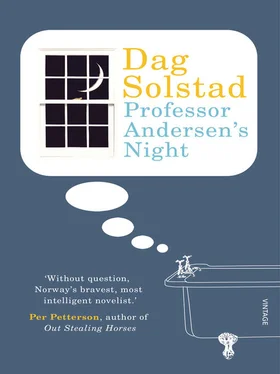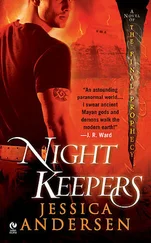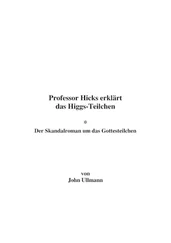Dag Solstad - Professor Andersen's Night
Здесь есть возможность читать онлайн «Dag Solstad - Professor Andersen's Night» весь текст электронной книги совершенно бесплатно (целиком полную версию без сокращений). В некоторых случаях можно слушать аудио, скачать через торрент в формате fb2 и присутствует краткое содержание. Год выпуска: 2011, Издательство: Harvill Secker, Жанр: Современная проза, на английском языке. Описание произведения, (предисловие) а так же отзывы посетителей доступны на портале библиотеки ЛибКат.
- Название:Professor Andersen's Night
- Автор:
- Издательство:Harvill Secker
- Жанр:
- Год:2011
- ISBN:нет данных
- Рейтинг книги:3 / 5. Голосов: 1
-
Избранное:Добавить в избранное
- Отзывы:
-
Ваша оценка:
- 60
- 1
- 2
- 3
- 4
- 5
Professor Andersen's Night: краткое содержание, описание и аннотация
Предлагаем к чтению аннотацию, описание, краткое содержание или предисловие (зависит от того, что написал сам автор книги «Professor Andersen's Night»). Если вы не нашли необходимую информацию о книге — напишите в комментариях, мы постараемся отыскать её.
Professor Andersen fails to report the crime. The days pass, and he becomes paralysed by indecision. Desperate for respite, the professor sets off to a local sushi bar, only to find himself face to face with the murderer.
Professor Andersen's Night
Professor Andersen's Night — читать онлайн бесплатно полную книгу (весь текст) целиком
Ниже представлен текст книги, разбитый по страницам. Система сохранения места последней прочитанной страницы, позволяет с удобством читать онлайн бесплатно книгу «Professor Andersen's Night», без необходимости каждый раз заново искать на чём Вы остановились. Поставьте закладку, и сможете в любой момент перейти на страницу, на которой закончили чтение.
Интервал:
Закладка:
‘Pull yourself together,’ he told himself urgently. ‘You have been gone for half an hour on Christmas morning, to be exact from 12.45 p.m. to 1.15 p.m.; how do you imagine that anything could have happened at the window in such a short space of time? Hope, well, yes, but it’s a faint hope. Something will happen over there sometime, but it needn’t happen today. Calm down. Think about something else.’ But he could think of nothing else.
‘I have to talk to someone,’ he thought. ‘I must call someone.’ He thought about his friends, which of them he should call, and while he was thinking about it, he remembered that tomorrow, on Boxing Day, he was of course supposed to go to Nina and Bernt Halvorsen’s place for dinner. ‘I can wait till then,’ he thought. ‘I’ll talk to Bernt about it. He is a doctor after all.’ He was invited for seven o’clock, and if he arrived an hour earlier, then he and Bernt would have plenty of time to talk, while Nina was in the kitchen getting the food ready, he thought. Bernt most likely only has to see to the wine, uncork it and put it beside the heater to bring it to the right temperature, and while Bernt Halvorsen saw to that, he could explain. The thought of this calmed him. All he had to do was to stick it out for just over a day, and then he could explain. He’d manage that. He could bear it for that long. He went into the kitchen and had a look at the lutefisk he had in the fridge. Took it out and felt it. It was nice and firm, you can keep lutefisk in the fridge for a whole day, as long as you buy prime quality fish, he thought, and put the fish back in the fridge again. He wasn’t going to dine until evening. In the meantime he was going to read a good book, whatever he meant by that, he thought. And along with the book he’d have a drink. With dinner: beer and aquavit. With the coffee: cognac.
And that was the way it turned out, you might say. Professor Andersen woke up the next morning with a bad hangover. It was still snowing. The roar of snowploughs could be heard everywhere, as well as the grating sound they made as they scraped the snow off the road surface on Drammensveien. The curtains in the window opposite were still drawn. The rectangular curtains which covered the whole window, in an extremely compact manner. Professor Andersen had repeatedly gone across and looked over at the other side of the street, yesterday Christmas Day, and last night, and he did so frequently this day, too. He was looking forward to the dinner party at Nina and Bernt Halvorsen’s. As early as five in the afternoon he left his apartment, because he suddenly decided that he wanted to walk all the way to Sagene.
He walked up Niels Juels gate to Riddervolds Plass, after that up Camilla Colletts vei and Josefines gate to Homansbyen and Bislet. From Bislet: up Dalsbergstien to Ullevålsveien and St Hanshaugen, then steeply down Waldemar Thranes gate to Alexander Kiellands Plass. From there he walked along Maridalsveien up to Vøien Bridge, and up there, in a small house beside the River Aker whose grassy banks were now covered in snow, lived the Halvorsens, the married couple, both doctors, who had invited him to dinner. He walked along calmly at first, slowly, in fact, through the driving snow and the Yuletide darkness towards Riddervolds Plass and Bislet, because he had plenty of time and did not want to arrive too early; after all, he intended to arrive at six o’clock for a dinner he was invited to at seven. But even before he was at Bislet he noticed that his pace had quickened, because he had a burning desire to carry out his plan, and so, when he was at St Hanshaugen and about to start on the descent to Alexander Kiellands Plass, he felt good and warm and longed to reach his destination, so that he might give vent to the thoughts burning inside him. Because he knew why he had put himself in this situation. He couldn’t have acted otherwise. He had witnessed a murder, and hadn’t reported it. No, indeed, he had not. He didn’t have the slightest inclination to do so, and he knew why. The murder had happened. That was the issue, something irreversible had happened, something he had witnessed. He couldn’t warn them about something irreversible. If he had witnessed a burglary, had he, for instance, seen there were thieves in that same apartment, who were carrying out a television and a stereo, then he wouldn’t have hesitated to call the police. Because then it would have been urgent. Likewise if there had been a fire. If he had seen smoke seeping out of the window, or smelt it, he would, of course, have called the fire brigade without a moment’s hesitation. And, well, if he had witnessed a vicious assault down on the street, and it had looked as though one of them was killing the other, then he would have run over to the phone and called the police. And while he waited for the police, he would have considered intervening himself in order to stop the abuse, if he hadn’t been too cowardly, that is. Well, let’s say that he had been too cowardly, and one person had battered the other to death before the police arrived, while he stood and watched it, then he would it is true have had dreadful pangs of conscience to contend with, but he could have lived with that, yes, he damn well could live with that, he thought defiantly, and, coward or not, he would certainly have called the police. There was no doubt about that, because that phone call could have prevented something irreversible happening. But he had been a witness to something irreversible, and there was nothing he could do. He couldn’t make things better by calling to notify them that it had happened. The murder, which he’d witnessed, was an accomplished fact. ‘I can’t tell them about this. The only outcome would be the murderer’s arrest.’ And the murderer might well be caught, but not on account of him, Professor Andersen, intervening and notifying them that the man had committed a murder. The idea was distasteful to him.
‘Do you understand what I’m saying?’ he thought, directed to the people whose house he was now hastening towards. ‘The young woman will never stand in the window again. Maybe I have been hoping for two days that she will stand in the window again, but she isn’t going to. She is dead. She is murdered. The curtains are drawn. And when they get drawn back, it will be the murderer who is standing in the window, peering out. It’s impossible for me to play a part in his capture. I can’t commit such an offence against a man who has murdered,’ he thought, horrified at what he was actually thinking, but at the same time longing to talk about it to a friend, so he hurried up Maridalsveien. Yes, he almost ran through the snowy weather and the winter darkness and the city’s lights, for an opportunity to share his opinion on the irreversible thing that had happened.
He was out of breath when he rang the doorbell at the Halvorsens’. Bernt opened it. ‘Heavens, are you here already?’ he exclaimed. ‘Yes, wasn’t it at seven o’clock then?’ answered Professor Andersen innocently. ‘Yes, but it’s a quarter to six now,’ said Bernt, and he laughed. ‘Oh, damn, I must have got the time wrong,’ muttered Professor Andersen. Bernt opened the door wide, and Professor Andersen shuffled in, crestfallen. This wasn’t how he had imagined it. He had thought that when Bernt Halvorsen looked surprised and said that he had come far too early, that he would, of course, have answered: ‘Yes, I know that, but I have something important to talk to you about.’ Why had he not said that?
Maybe because it struck him as being a little impetuous. He had, after all, enough time before the other guests arrived to talk to Bernt about this. He would try to bring the conversation round to it in a natural way. But that proved to be impossible. He couldn’t bring himself to talk about it, even though he and Bernt had ended up sitting in the living room with a drink each (as he had imagined in advance), while Nina was out in the kitchen making food, now and then asking her husband to come and help with something or other. Each time Bernt went into the kitchen, Professor Andersen had an abundance of time to consider how he might ease the conversation round to the subject he was dying to tell a friend in confidence, either by summoning up his courage and coming straight to the point, or by finding a lead which would allow Professor Andersen to drop an opportune remark lightly and easily, even though it was dreadful. But when Bernt Halvorsen returned to the living room, that remark did not present itself. The time was getting on for 7 p.m., and the other guests would soon be arriving. Professor Andersen expected the doorbell to ring. The doorbell might just as well ring. Because he understood. He knew now; he wasn’t able to confide in his good friend Bernt Halvorsen, not about this. About a lot of other things, but for some reason or other not about this.
Читать дальшеИнтервал:
Закладка:
Похожие книги на «Professor Andersen's Night»
Представляем Вашему вниманию похожие книги на «Professor Andersen's Night» списком для выбора. Мы отобрали схожую по названию и смыслу литературу в надежде предоставить читателям больше вариантов отыскать новые, интересные, ещё непрочитанные произведения.
Обсуждение, отзывы о книге «Professor Andersen's Night» и просто собственные мнения читателей. Оставьте ваши комментарии, напишите, что Вы думаете о произведении, его смысле или главных героях. Укажите что конкретно понравилось, а что нет, и почему Вы так считаете.












